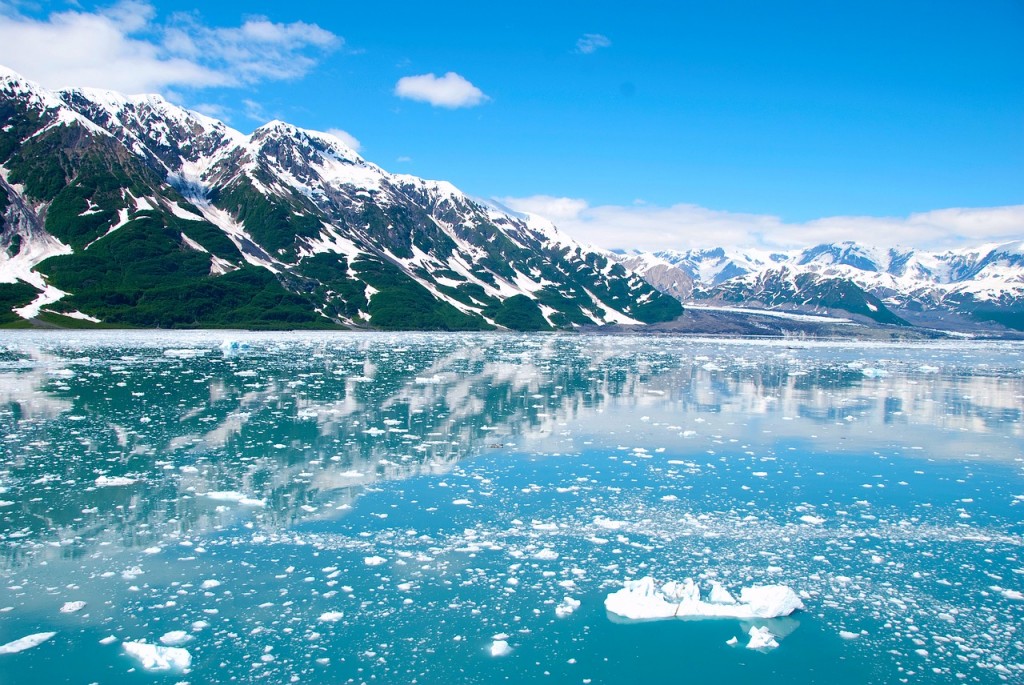When was the last time you went outdoors purely for enjoyment?
If you’re like the majority of Americans, it’s probably been a coon’s age.
“So what?” you might think. “I can watch Planet Earth on Blu-ray. It isn’t your business, anyway.”
No, it certainly isn’t, but please don’t get defensive, friend. My intention here is not to condemn you for eschewing the natural world from your normal routine.
Rather, I’d just like to explain a few research-based conclusions that may surprise you.
You see, spending time outdoors comes with a whole host of benefits. At the same time, neglecting to spend any time in Mother Nature has very real, detrimental effects on well-being.
Interested yet? I hope so. Let’s take a closer look.

Nature-Deficit Disorder
In his book, Last Child in the Woods: Saving Our Children From Nature-Deficit Disorder, Richard Louv discusses a condition that he labels “nature-deficit disorder”.
He argues that the rise of urban living, the explosion of technology, and the portrayal by the media of nature as something alien and dangerous contribute to a difficult modern predicament — namely, people not going outside.
Louv points to various studies and scientific evidence to connect a lack of time spent in nature with many problematic conditions prevalent in modern society — ADHD, depression, anxiety, obesity, and boredom, to name a few.
Louv’s compelling book orbits around a central premise: We’re conditioned to act in certain ways in the modern world, but our brains aren’t wired to handle the resulting lifestyle and mental state.
The endless stimuli that surround us in the 21st century create an environment of constant interruption and entertainment. We, in turn, become easily-distracted, sedentary multi-taskers, always sitting still, constantly flipping between channels, screens, and tasks or waiting to be amused.
Ultimately, this leads to us feeling stressed and overwhelmed. We find it difficult to concentrate and become bored easily. We gain weight. We grow depressed.
Why does this happen?
From an evolutionary vantage point, we’re just not built to live in accordance with our current culture. Our minds aren’t set up to focus on this much at a given time. Our bodies are not meant to stay motionless all day. We’re made to be active doers, not passive absorbers.
What can we do about it?
The Natural Remedy (6 Health Benefits)
Louv goes on to argue that the solution to many of our woes is as basic as getting outside more often.
He isn’t alone, either. Many studies (like this one or this one) have been conducted that demonstrate the remarkable restorative capacities of the natural world.
To give you a better picture of how this works, here are six specific ways (with explanations) that time spent in the natural world uplifts us.
#1: It allows us to gain perspective on stress.
You’ve probably heard of Henry David Thoreau, a famous American transcendentalist.
Thoreau believed in spending extended amounts of time in nature to understand what was truly important in his life. I think we could all take a page from his book.
We spend so much time in the city, our jobs, our commitments, and our classes nowadays. Everything is always moving so fast. We become ensnared in the clutches of our routines.
We feel this never-ending succession of tasks weighing us down. We’re always fretting about what’s next.
Spending time outdoors shows you that the world, in essence, is peaceful rather than hectic. Nature moves slowly, yet accomplishes its goals nonetheless.
When we stop to watch the squirrels play or the sparrows flutter about, we allow ourselves to take a step back. Our minds realize they’ve been hoodwinked. In actuality, we have no reason to fear or worry. It just seems that way.
Nature gives us the sense that everything is okay and as it should be. It shows us that we have room to relax, room to play, room for our families, and room to breathe.
#2: It heightens mindfulness and focus.
Have you ever heard of mindfulness? Many people haven’t, which is a shame, as research has revealed numerous positive effects of a mindfulness practice on personal well-being, such as increased mood stability, healthier self-regulation, and decreased stress.
Mindfulness means directing your attention more completely to the present moment — to your physical sensations, the space your body is occupying, and the sights and sounds of your immediate surroundings.
Being mindful is enormously difficult in the age of distraction, which is why it’s all the more important as well. Mindfulness teaches us to clear away the excess, to be content in the present moment, and to direct our focus deliberately.
It’s much easier to be mindful in the natural world. With zero distractions, it feels so right to simply become immersed in the present — the rich colors of the scenery, the energy pulsating through you, the fact that you’re alive and breathing.
In and of itself, developing a mindfulness practice could be one of the best decisions you ever make for your mental well-being. I’ve written about it here previously, if you’d like to read more.
#3: It revitalizes the body.
As I touched upon, our bodies are not meant to sit in the same spot all day. We aren’t trees or sponges; we’re hairless apes! We’re designed for physical exertion.
People often hear terms like “physical exertion” and run for the hills. Many of us have developed an aversion to exercise. We think of it as something strenuous and undesirable.
This seems tragic to me because exercise has had such wonderful effects on my life. Please realize this: Exercise does not have to mean agony and discomfort. It can be as simple as a half hour stroll along the lake or through the park.
Even relatively effortless physical activity provokes an enormous positive response from our body and mind. We gain energy, reduce anxiety, build confidence, and improve our overall well-being.
#4: It cultivates spirituality.
William Wordsworth, the father of British Romanticism, once wrote:
“THE world is too much with us; late and soon,
Getting and spending, we lay waste our powers:
Little we see in Nature that is ours;
We have given our hearts away, a sordid boon!”
These lines contain eons of wisdom. When Wordsworth speaks of “the world”, he means the world we’ve created — the fast-paced domain of labor and commerce.
He’s saying that we are too bound up in this world, and as a result, we are losing our true power. We look at the natural world and see it as separate from us when this isn’t true.
We are nature. We are the Earth, just as much as the soil and the trees and the oceans. We are one with the universe, and when we realize this, we experience the Divine. We are uplifted by the ecstasy of Unity.
When we believe that we are harmoniously intertwined with our natural surroundings, it shifts our consciousness. We are not small and weak. We are infinite and powerful beings.
For millennia, Wordsworth and countless other great minds have been encouraging us to open our eyes to the Impenetrable Mystery of the natural world. Spending time outdoors, in solitude, is the way to do just that.
#5: It enables us to disconnect from technology.
I don’t want to come off as a technology-hating, new age fruitcake in this article, so please don’t misconstrue me. I love technology. I wouldn’t be able to communicate with you right now if it weren’t for the marvels of advancement.
However, I do think that we need to draw the line somewhere. Some of us are so glued to our phones and computers all day that we’re largely oblivious to the world around us.
I’ve certainly been guilty of this, and I’ve taken steps to reduce my use of these portals. Our culture is moving in a direction of ever-increasing reliance on screens. We live through them.
Taking the time to remember what life is like without them can have a number of advantages, such as:
1) You stop living vicariously through screen-based entertainment and can have raw, direct, visceral experience.
2) You’re reminded that modern technology, while nice, isn’t essential to your survival.
3) You remove distraction and augment your ability to focus more wholly on a single thing.
4) You can see more objectively how much time you waste in your digital worlds.
Spending just an hour a week outdoors without your phone is a great place to start. You may be surprised at how freeing it feels to lose the gadgetry.
#6: It instills us with a sense of appreciation for simple joys.
Many people complain of boredom nowadays. Part of the reason for this is that we’ve lost our appreciation for life’s simple delights.
We’ve lost our appreciation for silence, for stillness, for beauty. Once again, the era of bells and whistles seems to be the culprit. Everything around us teaches us that we deserve to be entertained.
Spending more time in nature gives you a chance to realize the exact opposite — that life is already enough. We don’t need so much excess, so much shallow entertainment.
I can’t tell you how to derive pleasure from uncomplicated, basic things. You have to realize the way for yourself.
All I can do is say this: Take a slow walk through the forest. Spend a few hours fishing on the dock. Sit with friends around a roaring bonfire. Lay back and gaze at the shimmering night sky. Do this enough, and you’ll begin to understand.
A Quick Note for Those Who Don’t Like the Outdoors
Some people claim that they just do not like being outdoors. Too hot. Too cold. Too dirty. Too buggy. It itches. It smells. Etc.
Look. We are highly adaptable creatures who are easily conditioned into various ways of life and systems of belief.
Today’s culture programs us to see nature as a place of discomfort, a place we don’t belong.
We spend most of our time indoors, watching TV in cozy armchairs with air conditioning and a refrigerator ten feet away. The natural world certainly can’t give us those things, but it can give us so much more.
If you’re someone who thinks you’re “just not cut out for it” or that nature “doesn’t do much for you”, I strongly urge you to open your mind and give it another chance.
Life really does begin at the end of your comfort zone, so just get out there. Climb a tree. Dive in a lake. Roll around in the mud. Go for a hike.
Repeat until you’re re-conditioned. It won’t take your mind too long to remember its natural home.
Concluding Thoughts: My Walk Earlier Today
Today was a gorgeous day in Lincoln, Nebraska.
The golden inferno of the sun, unfettered by any cloud, shown brightly against the azure sky. I went for a walk.
I didn’t even leave the city. With a spring in my step, I wound through campus and downtown, soaking in the nice weather.
I stopped at one of my favorite courtyards. I meditated for about ten minutes. I wrote a bit of poetry. It was calming and uplifting.
Sometimes we don’t have the time or means to leave our urban landscape, but with a bit of resolve, we can still appreciate the outdoors while in the city.
With that in mind, think for a second. What can you do this week to pass an hour or two outside? I bet you could brainstorm a hundred things if you wanted, so here’s a challenge.
Go enjoy the outdoors this week at some point. After you do, consider doing it the next week, and the next. Make it a habit.
The results could be unimaginably awesome. Good luck, my friend.
Yours Truly,
Jordan Bates
“The tree which moves some to tears of joy is in the eyes of others only a green thing that stands in the way. Some see nature all ridicule and deformity… and some scarce see nature at all. But to the eyes of the man of imagination, nature is imagination itself.”
― William Blake
P.S. Was this post agreeable, helpful, insightful? Take two seconds and ‘like’ Refine The Mind on Facebook here. I appreciate it.
P.P.S. Last Child in the Woods is packed with many more insights than those I’ve provided here. If this article interests you, I’d recommend reading it. More people (and particularly more parents) need to be aware of these findings and the implications for our well-being and our children’s.
About Jordan Bates
Jordan Bates is a Lover of God, healer, mentor of leaders, writer, and music maker. The best way to keep up with his work is to join nearly 7,000 people who read his Substack newsletter.





[…] […]
As a helicopter jockey, I’m blessed to be surrounded by Nature, often dramatic-wild-stormy-threatening, as well as calm-peaceful-dreamy. It helps me feel small, which is a balancing feeling I like. I’m just a little Blip in the Universe, not a bad little creature, just rather short-lived and finite, occasionally dull, as well as entertaining and excited. What you write here is the truth. Although most people don’t recognize it, and the access to Free Nature is becoming more and more fettered. A great pity. Too many people live and work in a cubicle, in the physical as well as the emotional… Read more »
Agreed, Francis! Thanks for the comment. And I definitely want to read your cubicle piece(s) — noticed it on your site the other day. Send me whatever you like, and I’ll keep chipping away at your work!
To back you up on your astute article, Jordan. Nature is awesome, it constantly reminds me how small I am, and I would go screaming bananas if you locked me in an office in a concrete-and-steel glitter-box cage in a so-called Modern City. Sure, on the 27th floor of the Executive Suit of the Houston sky scraper, you are the Vice President of The Division (Salaam!) and everybody is in awe at you, (Salaam!), but at 3,000 feet a hundred miles offshore, on a stormy day, you are nothing. Just a speck, finite, limited, half blind, but… searching. Aware of… Read more »